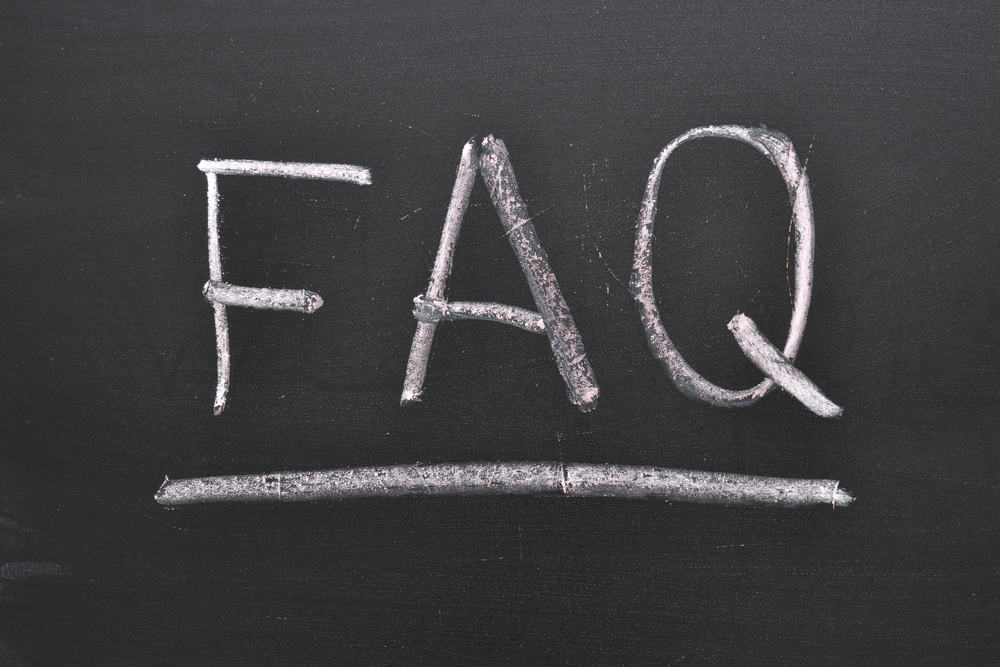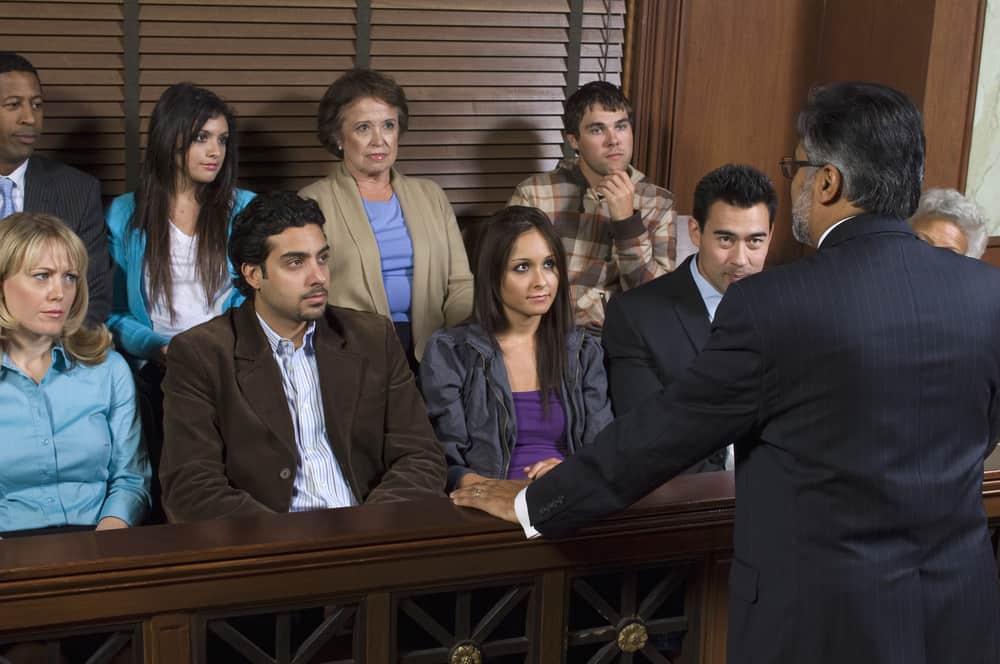SCAM ALERT: Do Not Pay Callers Who Claim You Missed Jury Duty
The U.S. Federal Courts sent out this bulletin on 08/01/2024 at 04:22 PM EDT.
Being summoned for jury duty, while a civic responsibility, is rarely considered “fun.” Ignoring jury summons, however, can easily have consequences.
The penalties for missing jury duty vary by state and on the Judge whose court you have been called to appear in.
While state laws set boundaries on financial and other penalties, the Judge has broad discretion when to follow up and the extremes to which they are prepared to track down and punish an unwilling juror.
Who Can Get Called for Jury Duty?
People eligible for jury duty include candidates who fulfill the following criteria. They must be:
- U.S. citizens
- Residents of the state or area (this varies, but for example, Illinois law requires that potential jurors must reside in the county of the court that summons them)
- 18+ years of age
- Free from all legal exceptions
- Fair character and integrity
- Able to understand (in spoken or written form) and communicate in English
- (This is subjective, but) Be of sound judgment and well informed.
What Typically Constitutes Legitimate Grounds for Avoiding Jury Duty?
People try all kinds of things to avoid jury duty. The grounds on which one can be excused vary by state, but some legitimate grounds can be cited to be let off, while other commonly used excuses will not work.
Below are some commonly accepted reasons for not being required to be on jury duty:
- Ineligibility based on the criteria above (e.g., below 18 years of age, not a citizen, etc.).
- Economic Hardship – if you are your family’s sole income earner, the meager pay from jury duty is unlikely to be sufficient to compensate you for lost wages.
- Physical and mental disabilities – a diagnosed disability will usually get you off a case.
- Difficult family circumstances (dependent care) – The Judge will often consider the possibility that a single mother or primary caregiver may find it difficult to (a) spare the time and (b) remain adequately focused on the ongoing case.
- Felony Convictions – Past felony convictions are often sufficient to relieve you of jury duty.
- Opinions that impact the case – If you express views that can be deemed to be biased against one side of the case or the other, you will likely be recused.
- In some states, older citizens may be recused.
How Often Can Someone be Called for Jury Duty?
State laws also govern the frequency of calls to jury duty. Some states, for example, will not allow people to be summoned for jury duty more than once every 12 months.
Interestingly enough, if you are summoned and choose to ignore your responsibility, one of the possible consequences could be that you will be called very soon afterward (assuming that you were not forced to appear or show cause in front of the Judge who issued the first jury duty summons for you).
If You do Get Called, Will you Automatically Serve on the Jury?
Not even close. When people appear in a jury pool, there are multiple steps in the selection process where someone can be excused from appearing on the Jury. These include:
- An initial questionnaire that must be filled out – you could quickly be rejected and excused (that is, sent home) based on how you answer.
- When the Jury is being picked, the Prosecution and Defense attorneys, aided by the Judge, can question each Jury member. There can be multiple reasons why a juror may be rejected at this stage, along with mandatory rejections that each legal team has to throw a juror out.
Only after this stage will a panel of 12 jurors (and usually a couple of alternates) be seated and expected to remain part of the Jury throughout the trial.
It can be much harder to be excused once you are seated on the Jury.
Can you get in trouble for being late to jury duty?
As mentioned above, the situation varies by state and is at the discretion of the Judge who has issued the summons and must decide how to deal with a no-show.
The gamut of possible penalties can be broad, ranging from:
- No Consequence – though it is likely that in cases like this, you may get summoned soon for another jury duty, short of the typical gap between calls.
- Show Cause Notice – if the Judge issues a formal show-cause notice, you will need to appear in court on a given date and time and explain to the bench why you neglected to respond to the summons. Based on your answers and at the Judge’s discretion, there may be a gamut of fines and/or other penalties imposed.
- Issue a Bench Warrant – This is a more drastic measure that the Judge can resort to, in which case law enforcement or court officers can show up at your recorded place of residence, arrest you, and produce you back in court. Once again, your explanations will determine how the judge will proceed with fines and/or penalties.
- While bench warrants are less likely for a first-time offender ignoring a summons to jury duty, they become more likely if (a) you are a habitual offender in terms of neglecting summons and/or (b) miss actual duty after being seated on a jury without an excused leave of absence or a plausible reason for the same.
Whatever the situation, neither a Show Cause Notice nor a Bench Warrant being issued are benign situations. In the Bench Warrant case, you will be held in Contempt of Court and ordered to pay a fine – which varies depending on the state, as we will see below. The Show Cause Notice may end up in the same situation if the Judge is unsatisfied with your explanations.
The bottom line is that ignoring a summons to jury duty is not a good idea – you should be aware of the consequences. At the very least, call the courthouse (if you feel you have a legitimate reason) and try to get out of the commitment in an above-board fashion.
Range of Punishments, Penalties, and Fines Vary by State
We mentioned before that the range of actions available to a Judge varies a lot by state. Let’s review two states, side by side, to get a feel for what could happen.
Table 1 below compares Illinois (a relatively lenient state) with Texas (a somewhat harsher state) for ignoring the summons from a County or District court:
Table 1: Penalties for Ignoring Jury Duty Summons and/or Failing to Appear
| Type of Penalty | Illinois | Texas |
| Fine | $5-$100 | $100-$1000 |
| Jail Time | Yes, based on the discretion of the Judge. | Up to 6 months. |
| Community Service | Possible, either instead of or in addition to, jail time. | Possible, either instead of. or in addition to jail time. |
| Charge | Contempt of Court | Contempt of Court |
It is to be noted that the types of punishments are usually lesser for incidents involving a municipal or small claims court. There, if you are found in contempt, you will be penalized per standard Federal guidelines, with a fine of up to $100 and up to three nights in jail.
The Final Word
There are usually ways of getting excused from jury duty with some communication with the Clerk of the Court, especially if you have a plausible excuse.
Ignoring the summons to jury duty with no communication and no good reason is rarely a good idea, on the other hand. If you find yourself faced with a Show Cause Notice or a Bench Warrant issued, be very careful how you proceed.
Consulting with a criminal defense attorney and having counsel appear on your behalf may often be your best recourse if you find yourself in an unfortunate situation with the court.

What happens if you don’t answer a jury summons?
As mentioned above, the situation varies by state and the discretion of the Judge who has issued the summons to decide how to deal with a no-show. The judge may ignore it and send you a notice to appear in court to explain your absence or the judge may have you arrested and brought to the courtroom.
If You do Get Called, Will you Automatically Serve on the Jury?
Not even close. When people appear in a jury pool, there are multiple steps in the selection process where someone can be excused from appearing on the Jury
How Often Can Someone be Called for Jury Duty?
State laws also govern the frequency of calls to jury duty. Some states, for example, will not allow people to be summoned for jury duty more than once every 12 months.
Can you get in trouble for being late to jury duty?
This is similar to missing jury duty so try to call ahead if you can. Lateness can be considered absence, it depends on the state and the judge
What is the oldest age for jury duty?
There is no age exemption for jury duty. Many people are physically and mentally capable of serving on a jury at 90 and others are unable to at 60. If you are unable to serve due to your age, let the court know
Can jurors talk to each other?
Of course they can talk to each other but they should refrain from discussing the case until deliberations officially begin
Can jurors go home?
Typically, jurors go home at night but receive instructions to ensure that there isn’t any inappropriate influence.
How are the 12 jurors chosen?
Lawyers and judges use the “voir dire” (Latin for speak the truth) process to choose twelve jurors. Judge and lawyers for each side question prospective jurors to determine if they are suitable to judge the case fairly.
What ages are eligible for jury duty?
In most states anyone over the age of 18 with no upper limit due to age
How do jurors vote?
After both parties finish presenting all evidence, the jury goes to a secluded room to decide and then vote on a verdict. This verdict is then presented to the court
Do jurors get paid in the US?
State and local rules vary, but federal jurors receive $50 per day, reasonable transportation expenses, and parking fees. Jurors serving overnight receive an allowance for meals and lodging.
Can you get out of jury duty due to anxiety?
If you are summoned, you must appear. When you are questioned by the court, you can explain your condition and they may excuse you especially if they are afraid a panic attack can be disruptive.
What happens if all 12 jurors don’t agree?
If the jury cannot agree on a unanimous verdict in a criminal trial, a hung jury may be declared, and there would be a mistrial. However, the number of jurors who sit on a jury panel and the percentage of jurors required for a verdict vary depending on state laws. The government may try the case again before a new jury or decide not to pursue the case further.
I am over 70, why am I being called for jury service?
There is no maximum age for jury service
How often is there a hung jury?
A hung jury where no verdict is reached on any count is rare and only happens 7.5% of the time. The jury being hung on the top count (the most serious charge against the defendant) occurred 10% of the time.



